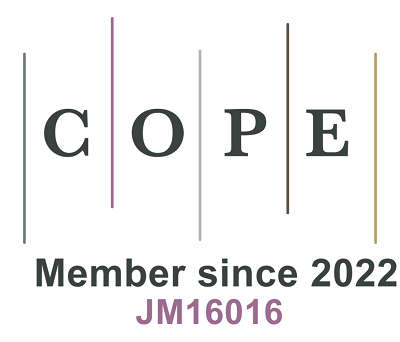A Special Interview with Prof. David R. Sinacore - - Metabolism and Target Organ Damage
On January 26, 2024, the Editorial Office of Metabolism and Target Organ Damage (M&TOD) is honored to have conducted an enlightening interview with Prof. David R. Sinacore, a distinguished new member of the Editorial Board. Prof. David shared groundbreaking insights into worksite-based intensive lifestyle therapy for individuals dealing with obesity and type 2 diabetes, uncovering notable improvements in metabolic health. The interview further delved into the impact of aerobic and resistance exercise on older adults with obesity, presenting holistic approaches for enhancing both physical and metabolic function. Additionally, Prof. David highlighted pivotal findings from their recent manuscript in M&TOD, focusing on "Major Adverse Foot Events and Functional Mobility Deficits Associated with Diabetic Neuropathy and Nephropathy". The discussion concluded by providing a glimpse into ongoing research projects and offering recommendations to amplify the visibility of M&TOD, aligning with the journal's aspirations for 2024.in advancing research and treatment in the field of steatotic liver disease.
Questions for this interview:
1. Your research underscores the cardiometabolic benefits of worksite-based intensive lifestyle therapy for individuals with obesity and type 2 diabetes. What were the most noteworthy outcomes observed in your study?
2. Could you discuss the impact of aerobic or resistance exercise, or both, on intermuscular and visceral fat, as well as physical and metabolic function in older adults with obesity, particularly in the context of dieting?
3. Your recent contribution to M&TOD’s Special Issue on “Emerging Insights into Metabolic Neuropathies: From Pathogenesis to Clinical Management” is titled “Major Adverse Foot Events and Functional Mobility Deficits Associated with Diabetic Neuropathy and Nephropathy”. Why did you choose to publish your work in this Special Issue in M&TOD? Can you elaborate on the key outcomes and implications of this study?
4. Can you offer a glimpse into your latest research projects or upcoming studies? What exciting discoveries or advancements can we anticipate from your ongoing work?
5. Currently, M&TOD is indexed in Scopus with a CiteScore of 3.2, and the journal is undergoing evaluation for inclusion in the ESCI. Looking ahead to 2024, our goal is to be indexed in PubMed and achieve the first impact factor. Do you have any recommendations to enhance the performance of M&TOD? For instance, considering that the journal is relatively new and may not be widely known among experts, do you have any valuable suggestions for increasing its visibility?
Personal Introduction:

David R. Sinacore, PT, PhD, FAPTA, is a Professor and Director of Research in the Department of Physical Therapy, Congdon School of Health Sciences at High Point University. Prof. Sinacore’s research focuses on movement-related impairments and associated musculoskeletal dysfunctions resulting from chronic, non-communicable diseases including obesity, diabetes mellitus, peripheral neuropathy, physical frailty, sarcopenia, osteoporosis, and chronic kidney disease. His strong teaching and research emphases include physical performance adaptations resulting from multi-component exercise training to ameliorate these chronic conditions. His physical therapy clinical practice specializes in (diabetic) foot impairments (neuropathy, vascular disease, foot deformity) and therapeutic interventions to prevent non-traumatic lower extremity amputation.
Prof. Sinacore has published about 129 Original Data Articles and 194 abstracts with presentations since graduating with his BS in physical therapy in 1979 from SUNY Buffalo. He has published his work in leading medical and rehabilitation journals such as the New England Journal of Medicine (twice), Journal of American Medical Association, Archives of Internal Medicine and Physical Therapy. Several of Dr. Sinacore’s research publications are Citation Classics, having been cited 100 times or more. His research has been supported by the National Institutes of Health (NIDDK, NICHD, NIA) and the Foundation for Physical Therapy. His research contributions have been recognized by the Chattanooga Research Award (1987), the Jack Walker Award (1987 & 2017), and the Golden Pen Award (2000) from the American Physical Therapy Association. He is a two-time recipient (2004 & 2013) of the Roger A. Mann Award for Outstanding Clinical Study from the American Orthopedic Foot & Ankle Society of the American Academy of Orthopedic Surgeons. He was recognized with the Roger E. Pecoraro Memorial Lecture Award (2008) from the Foot Council of the American Diabetes Association. He was recently recognized for the 2023 Lifetime Achievement Award from the FOOT & ANKLE SPECIAL INTEREST GOUP, Academy of Orthopaedic Physical Therapy, American Physical Therapy Association for career-long contributions to advancing foot and ankle physical therapy care through education, research, and FASIG service.
Prof. Sinacore served as the inaugural Associate Director for Post-Doctoral Fellowship for the Movement Science Program, Washington University School of Medicine, St. Louis (2004-2015). He has served as an Editorial Board member for Journal of Orthopedic and Sports Physical Therapy, currently serves as an EBM for the journal MUSCLES, and has served as member (1999-2004) and Chair (2002-2005) of the Scientific Review Committee for the Foundation for Physical Therapy. Prof. Sinacore was elected a Catherine Worthingham Fellow of the American Physical Therapy Association in 2005, the highest honor the association bestows upon its members.
Editor: Jennifer Lee
Language Editor: Catherine Yang
Production Editor: Yan Zhang
Respectfully Submitted by the Editorial Office of Metabolism and Target Organ Damage





